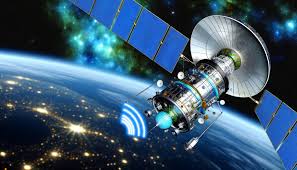Government urged to facilitate launch of satellite internet in Pakistan
Business leaders and industry
experts have welcomed the government’s efforts to facilitate the launch of
satellite internet services in Pakistan, expressing optimism that this new
connectivity option can address long-standing issues and help boost rural
economies.
The introduction of satellite
internet, they believe, could serve as a significant driver for economic
development across various sectors, including education, defense, healthcare,
banking, agriculture, aquaculture, oil and gas, mining, and natural resource
exploration.
Currently, the federal government is
in discussions to bring satellite internet to Pakistan, with engagements taking
place with SpaceX’s Starlink, a renowned satellite internet provider founded by
Elon Musk. Satellite internet services offer access in remote rural areas,
deserts, mountainous regions, and even oceans, filling the gap where
terrestrial infrastructure like cell towers or fiber-optic cables does not
reach.
Read More Pakistan
launches satellite-based broadband, challenging Elon Musk's starlink
Experts are urging the government to
create supportive policies and regulatory frameworks to attract satellite
internet providers. They emphasize the need for fair competition among all
players in the connectivity market. Authorities and stakeholders must prepare
to harness satellite internet’s potential across various sectors to maximize
its benefits and economic returns.
Pakistani-American businessman Anosh
Ahmed highlighted the significant impact satellite internet could have in
Pakistan by providing high-speed connectivity to small cities and far-flung
areas, where broadband is limited. He noted that reliable internet access in
rural villages would empower residents to work, learn, and engage in the global
economy.
“Satellite internet in countries
like the US has brought reliable internet speeds to rural and remote locations,
similar to urban areas,” Ahmed explained. “This connectivity is crucial for
remote work, online education, and telemedicine, bridging the digital divide.”
In the US, satellite internet has
helped reduce the number of Americans without broadband access—over 14 million
in rural areas, according to past reports. Similarly, in Pakistan, where 63% of
the population lives in rural areas, satellite internet could play a key role
in stimulating the local economy through access to markets, online education,
and digital services.
Read More Pakistan
urges strategic satellite reforms for national development
Starlink and similar satellite internet
services could attract both foreign and local investment by providing
dependable connectivity in resource-rich regions such as Balochistan and the
northern areas. This would enable businesses to expand operations in sectors
like mining, energy, and tourism, enhancing efficiency and security, Ahmed
explained.
Satellite internet could also
bolster the banking sector, helping to achieve financial inclusion and
accelerate the digitization of the economy. The service could further support
rural economic growth through agriculture and livestock.
Pakistan Telecommunication Authority
(PTA) reports that cellular mobile services now cover 91% of the country’s
population, with 3G/4G signals reaching over 81% through 55,777 operational
cell sites. However, challenges still remain, such as disruptions in internet
connectivity and slow speeds due to issues with undersea cables and fiber
optics. Many cellular sites in rural areas also face difficulties due to
limited electricity access or lack of power generation backup.
IT expert Dr. Noman Said stressed
that satellite internet would serve as a reliable alternative for IT companies,
allowing exporters to meet deadlines, reduce losses, and secure more projects
from international clients. It would also enable the development of sustainable
healthcare systems in rural and remote areas, providing much-needed relief to
underserved communities.
Government and private hospitals
could establish networks of telemedicine or virtual hospitals in small cities
and villages, treating patients efficiently without the need for long-distance
travel to major cities. With the integration of artificial intelligence and
robotic technology alongside faster internet connectivity, basic surgeries
could even be performed in rural areas by local hospitals with limited
infrastructure.
Read More Ahsan
Iqbal directs development of business plan for PakSat-MM1
Satellite internet services would
further enable the potential of agriculture, aquaculture, and tourism sectors
in remote regions, paving the way for significant growth. In many countries,
these sectors have flourished through the use of internet-based technologies
and applications, and adopting similar policies in Pakistan could lead to
unprecedented development.
In conclusion, the introduction of
satellite internet has the potential to transform connectivity in Pakistan,
bridging digital gaps, fostering economic development, and empowering remote
communities.
Source: Express Tribune
